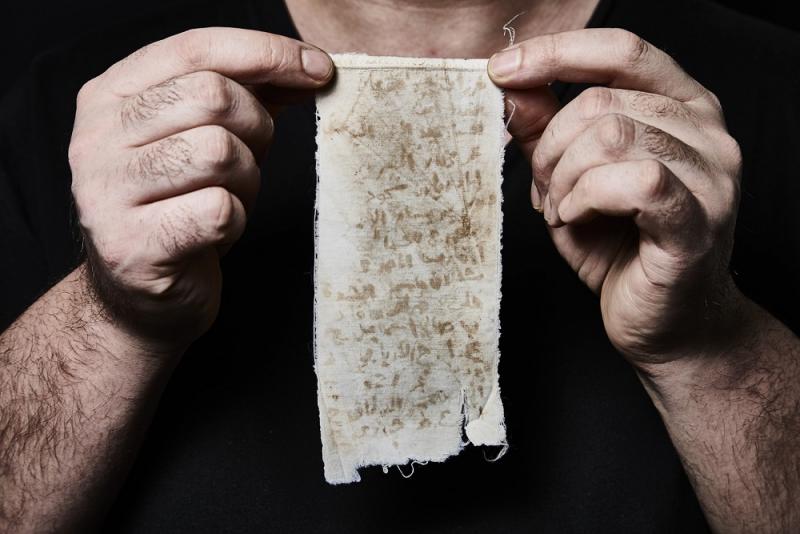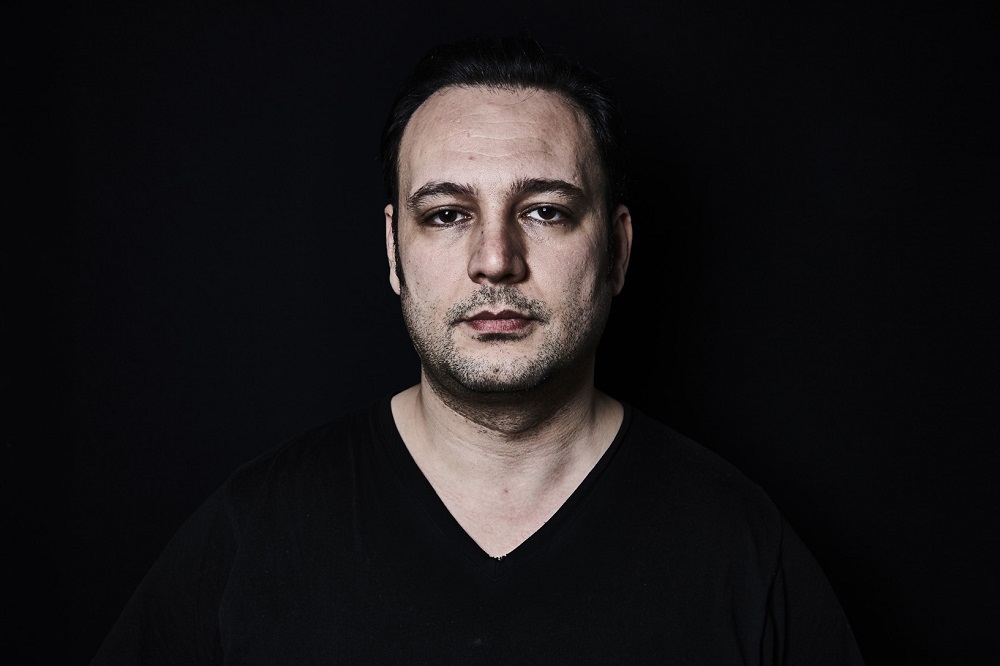Syria’s Disappeared review - 'must-watch can't-look record of Assad's atrocities' | reviews, news & interviews
Syria’s Disappeared review - 'must-watch can't-look record of Assad's atrocities'
Syria’s Disappeared review - 'must-watch can't-look record of Assad's atrocities'
Channel 4 documentary makes the case against Assad with indelible images and testimony

“The following images are extremely graphic.” The words appeared in white lettering against a black background, two-thirds of the way in. For the next minute, the screen filled with photographs of naked, emaciated corpses, some with crude writing across their bodies, others with labels affixed to foreheads. The eyes of one were gouged out; another’s mouth gaped open as if emitting a final scream of terror.
Syria’s Disappeared: The Case Against Assad was a must-view can’t-look documentary dispatch for Channel 4 about the 200,000 people arrested and detained after the Arab Spring took hold in Syria. Many are still unaccounted for. Six thousand are categorically known to be dead, thanks to the bravery of a military police officer working as forensic photographer as Hospital 601 in Damascus, who managed to smuggle photographs of the dead out of the country.
How this unidentified defector managed his feat of testimony in the face of grave personal risk has been reported elsewhere. This was the story of the people whose deaths he documented, and of the survivors who now fight for justice, and for Syria's remaining detainees to be released.
Mazen Alhummada, a thin, lively man, looked into the camera and spoke of the joy of the Arab Spring (“your heart would fly”) and the hell of his torture. First they broke his ribs. Then they hung him by handcuffs. Finally they squeezed his penis with a clamp, inserted a pole in his anus, and beat him. “The human brain can’t imagine it,” he said. They duly extracted a false confession. Asked what he thought of his tormentors, he was struck dumb. The camera lingered on his face as he tried to compute some sort of answer. He swallowed. A tear ran down his left cheek. “God will hold them to account,” he eventually said. “The law will hold them to account.” The law is having some difficulty in this respect because a UN Security Council resolution to refer Syria to the international criminal court was vetoed by – guess who? – Russia and China. This despite the copious evidence incriminating a regime which, in common with the Third Reich, is arrogantly obsessed with documenting its own atrocities. “The legal equivalent of a slam dunk,” said Stephen Rapp, the American lawyer and former US Ambassador-at-Large for War Crimes Issues in the Office of Global Criminal Justice. “We have more evidence than we need. It’s embarrassing that we’ve got no court to take it to.”
The law is having some difficulty in this respect because a UN Security Council resolution to refer Syria to the international criminal court was vetoed by – guess who? – Russia and China. This despite the copious evidence incriminating a regime which, in common with the Third Reich, is arrogantly obsessed with documenting its own atrocities. “The legal equivalent of a slam dunk,” said Stephen Rapp, the American lawyer and former US Ambassador-at-Large for War Crimes Issues in the Office of Global Criminal Justice. “We have more evidence than we need. It’s embarrassing that we’ve got no court to take it to.”
Sara Afshar’s shattering film triangulated the narrative with other detainees. Mansour al-Omari (pictured above) told how and he and other prisoners wrote down the names of detainees, whether dead or alive, on strips of shirt using chicken bone for quills and rust or blood for ink. These were then smuggled out of prison. “I have their blood with me,” says Mansour. Mohammed, who worked at Tishreen Military Hospital, witnessed torture first hand which was “horrifying and utterly indescribable”. He had a go at describing it anyway. “Write about us,” one man begged him as he was hooded and told to expect death. One of the photographs released was of Ayham Ghazoul (pictured above), a trainee dentist who joined the demonstrations in 2011. “The joy he felt!” said his mother Mariam Hallak, a head teacher who had previously supported the Assad regime. “His eyes were twinkling.” He managed to continue his studies after his initial arrest. He was detained again six months later, and within six days was dead. His oblivious mother spent the next 18 months badgering the authorities for news of his whereabouts. “Submit a request,” an attorney general said vaguely. Eventually someone took pity on her and gave her a certificate advising that “Corpse 320” had died of a heart attack. There were many pictures of Ayham looking cheerful. The one she keeps one her phone is of his face in death, eyes open, a label slapped on his forehead. “I felt a great relief,” said Mariam. When she’d finished her story she let out a deep breath, as if all that was stored up inside her clamoured for an outlet.
One of the photographs released was of Ayham Ghazoul (pictured above), a trainee dentist who joined the demonstrations in 2011. “The joy he felt!” said his mother Mariam Hallak, a head teacher who had previously supported the Assad regime. “His eyes were twinkling.” He managed to continue his studies after his initial arrest. He was detained again six months later, and within six days was dead. His oblivious mother spent the next 18 months badgering the authorities for news of his whereabouts. “Submit a request,” an attorney general said vaguely. Eventually someone took pity on her and gave her a certificate advising that “Corpse 320” had died of a heart attack. There were many pictures of Ayham looking cheerful. The one she keeps one her phone is of his face in death, eyes open, a label slapped on his forehead. “I felt a great relief,” said Mariam. When she’d finished her story she let out a deep breath, as if all that was stored up inside her clamoured for an outlet.
This grim hour in the charnel house ended by offering the faintest hint of hope as Rapp assisted in a Spanish legal effort to charge Syria with state terrorism. Elsewhere, realpolitik continues. The infamous clip of Assad smiling and casting doubt on the photographic evidence was shown. “He denies everything,” said Mariam. “He lives in his own reality.” The actual reality is indelible. At one point the screen filled with a collage of 20 faces of Syrian victims of state terrorism. It pulled away to reveal more rows, and out again, and again until each face was a tiny dot filling the screen.
Add comment
The future of Arts Journalism
You can stop theartsdesk.com closing!
We urgently need financing to survive. Our fundraising drive has thus far raised £49,000 but we need to reach £100,000 or we will be forced to close. Please contribute here: https://gofund.me/c3f6033d
And if you can forward this information to anyone who might assist, we’d be grateful.

Subscribe to theartsdesk.com
Thank you for continuing to read our work on theartsdesk.com. For unlimited access to every article in its entirety, including our archive of more than 15,000 pieces, we're asking for £5 per month or £40 per year. We feel it's a very good deal, and hope you do too.
To take a subscription now simply click here.
And if you're looking for that extra gift for a friend or family member, why not treat them to a theartsdesk.com gift subscription?
more TV
 theartsdesk Q&A: director Stefano Sollima on the relevance of true crime story 'The Monster of Florence'
The director of hit TV series 'Gomorrah' examines another dark dimension of Italian culture
theartsdesk Q&A: director Stefano Sollima on the relevance of true crime story 'The Monster of Florence'
The director of hit TV series 'Gomorrah' examines another dark dimension of Italian culture
 The Monster of Florence, Netflix review - dramatisation of notorious Italian serial killer mystery
Director Stefano Sollima's four-parter makes gruelling viewing
The Monster of Florence, Netflix review - dramatisation of notorious Italian serial killer mystery
Director Stefano Sollima's four-parter makes gruelling viewing
 The Diplomat, Season 3, Netflix review - Ambassador Kate Wyler becomes America's Second Lady
Soapy transatlantic political drama keeps the Special Relationship alive
The Diplomat, Season 3, Netflix review - Ambassador Kate Wyler becomes America's Second Lady
Soapy transatlantic political drama keeps the Special Relationship alive
 The Perfect Neighbor, Netflix review - Florida found-footage documentary is a harrowing watch
Sundance winner chronicles a death that should have been prevented
The Perfect Neighbor, Netflix review - Florida found-footage documentary is a harrowing watch
Sundance winner chronicles a death that should have been prevented
 Murder Before Evensong, Acorn TV review - death comes to the picturesque village of Champton
The Rev Richard Coles's sleuthing cleric hits the screen
Murder Before Evensong, Acorn TV review - death comes to the picturesque village of Champton
The Rev Richard Coles's sleuthing cleric hits the screen
 Black Rabbit, Netflix review - grime and punishment in New York City
Jude Law and Jason Bateman tread the thin line between love and hate
Black Rabbit, Netflix review - grime and punishment in New York City
Jude Law and Jason Bateman tread the thin line between love and hate
 The Hack, ITV review - plodding anatomy of twin UK scandals
Jack Thorne's skill can't disguise the bagginess of his double-headed material
The Hack, ITV review - plodding anatomy of twin UK scandals
Jack Thorne's skill can't disguise the bagginess of his double-headed material
 Slow Horses, Series 5, Apple TV+ review - terror, trauma and impeccable comic timing
Jackson Lamb's band of MI5 misfits continues to fascinate and amuse
Slow Horses, Series 5, Apple TV+ review - terror, trauma and impeccable comic timing
Jackson Lamb's band of MI5 misfits continues to fascinate and amuse
 Coldwater, ITV1 review - horror and black comedy in the Highlands
Superb cast lights up David Ireland's cunning thriller
Coldwater, ITV1 review - horror and black comedy in the Highlands
Superb cast lights up David Ireland's cunning thriller
 Blu-ray: The Sweeney - Series One
Influential and entertaining 1970s police drama, handsomely restored
Blu-ray: The Sweeney - Series One
Influential and entertaining 1970s police drama, handsomely restored
 I Fought the Law, ITVX review - how an 800-year-old law was challenged and changed
Sheridan Smith's raw performance dominates ITV's new docudrama about injustice
I Fought the Law, ITVX review - how an 800-year-old law was challenged and changed
Sheridan Smith's raw performance dominates ITV's new docudrama about injustice
 The Paper, Sky Max review - a spinoff of the US Office worth waiting 20 years for
Perfectly judged recycling of the original's key elements, with a star turn at its heart
The Paper, Sky Max review - a spinoff of the US Office worth waiting 20 years for
Perfectly judged recycling of the original's key elements, with a star turn at its heart

Comments
No doubt there are many